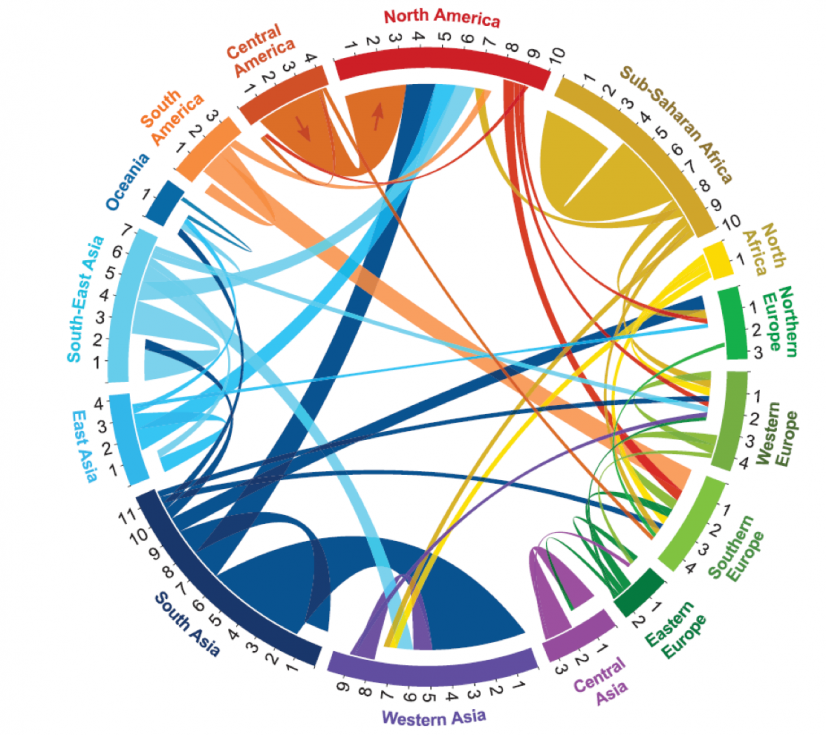
Analytical Work
A deeper understanding of migration and integration cannot be fully achieved without thorough analysis. That is what reveals the causes and consequences of diverse social phenomena, provides evidence for the effectiveness of good practice and, last but not least, helps to distinguish facts from mere rumours and assumptions. It enables us to overcome the many challenges we face today. That is also why our team in the Migration Awareness Department actively works with researchers in the field while creating our own analytical publications which are available to all experts from administration, NGO workers, journalists, as well as the public at large.
Our current research includes:
- The state of refugee integration policies (2015-2022): We participated in
NIEM (the National Integration Evaluation Mechanism) research project along with 15 other organisations. This project evaluates and compares the refugee integration policies of different EU countries based on a wide variety of metrics and indicators, while also assessing the success rates the integration of those policies. One of the project’s main outputs is the international comparative analysis of The European Benchmark for Refugee Integration. For Czechia specifically, there is also an updated extended Czech-language report titled, The Integration of Beneficiaries of International Protection in the Czech Republic.
- V4NIEM (Visegrad Countries National Integration Evaluation Mechanism) was realised in parallel with the flagship NIEM project. Its main goal was the long-term monitoring and evaluation of state integration policies’ efficiency, specifically in the Visegrad Four countries. The latest publication from this project is a Czech-language study that includes first-hand experiences in the form of interviews with asylum seekers and International Protection beneficiaries in Czechia. The study captures their impressions from their first days of arriving in the country, maps out their participation in the State Integration Programme, and introduces the readers to some of the most important challenges the refugees will face in the next phases of integration into society.
- As part of the project, I am European: Migration Facts & Stories for the 21st Century, and in cooperation with the organisation Perfect Crowd, we've conducted a survey among the graduates of our online course called Labyrinth of Migration (available in Czech). The survey, conducted primarily through interviews and questionnaires, showed how important the topic of migration has become in Czech schools in the wake of the Russian invasion of Ukraine in February 2022 and what specific types of support teachers appreciate when explaining migration. The results of the survey were reported in more detail in a separate article (also available only in Czech).
Other analytical work:
- We regularly publish analytical articles on this website focusing on selected aspects of international as well as internal migration. A common feature of our texts is the effort to be impartial, preferably drawing on primary sources (e.g. UN statistical data), terminological accuracy, comprehensiveness, and relevance, but also illustration with an abundance of maps or infographics. Among the most popular articles from our workshop are continuously updated overview texts on current global parameters of international migration, understanding the distinction between important terminology like "refugee," "economic migrant," and "foreigner," as well as articles providing information about the flight from Ukraine in connection to the 2022 Russian aggression.
Previously published analyses:
- Analysis of the media coverage of migration in the Czech Republic, Slovakia and Estonia (2018-2019): In consortium with People in Need Slovakia, the Estonian organisation Mondo, and in cooperation with the Faculty of Social Studies of Masaryk University in Brno, we participated in the analysis of the media framing of migration issues (this is a content analysis of texts about migrants and migration in Czech, Slovak and Estonian media, supplemented by interviews with journalists writing about migration). The aim was to map the environment in which the media portrayal of migration is created, while also assessing whether that portrayal can be considered balanced. More information about the report can be found here.
- Analysis of the attitudes of selected groups of the majority population towards migrants and refugees (2017-2018): The aim of the research, which was carried out as part of the international project Empowering Communities in Europe, was to better understand the roots of fear and anxiety about migration. The research findings are summarised in the English-language comparative study United in Anxiety, which includes results from the Czech Republic, Bulgaria, Croatia, Hungary, Poland, Romania, and Slovakia.
- Analysis of Hate Speech in the Czech Online Space (2015): An analysis focused on the nature of hate speech in the Czech online environment and the socio-demographic profile of its disseminators in online discussions between June and September 2015. The results of the analysis are published in the Czech-language report Expressions of Hate in Cyberspace and on Social Networks (available in Czech).
- Analysis of the Situation of Foreign Female Workers in Czech Households (2012-2014): As part of the project Equal Opportunities on the Threshold of Czech Homes and in partnership with the Association for Integration and Migration, we participated in an analysis of the situation of foreign female workers in Czech households.
